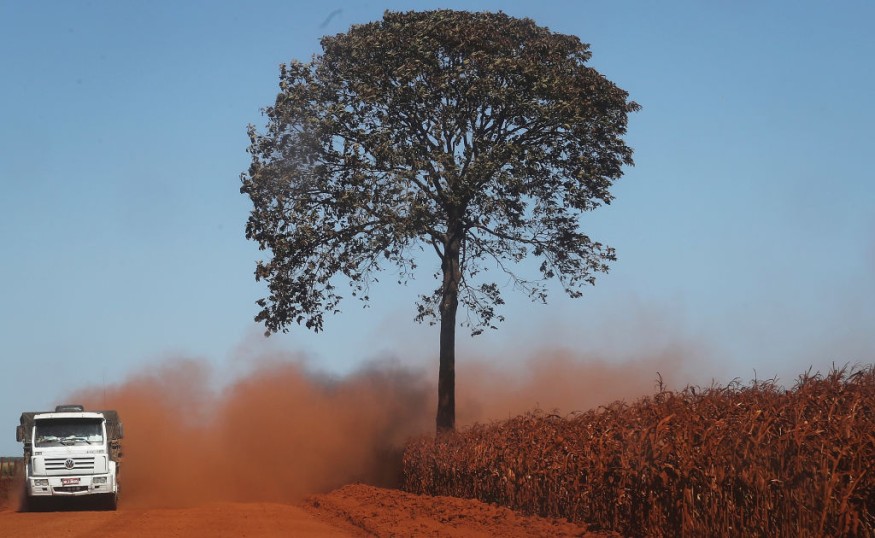Parts of Amazon Rainforest in Brazil Are Being Illegally Offered for Sale on Facebook Marketplace

Some portions of the Amazon rainforest in Brazil, which include national forests and land reserved for indigenous peoples, are being sold illegally on Facebook, a report said.
According to BBC, some of the areas listed via Facebook's classified ads service are as huge as 1,000 football fields combined.
Facebook reportedly said it would work with local authorities to stop the trade. However, the social media giant indicated that it would not take independent action of its own. According to Facebook, its commerce policies require sellers and buyers to comply with laws and regulations.
The BBC report noted that an indigenous community leader affected by the illegal activity urged Facebook to do more. Campaigners have claimed that the government is unwilling to stop the sales.
Ivaneide Bandeira, head of environmental NGO Kanindé, told BBC that the land invaders feel very empowered to the point that they are not even embarrassed to use the tech firm's platform to make illegal land deals.
What Part of the Amazon Rainforest is Being Illegally Sold on Facebook?
Many of the ads on Facebook reportedly came from Rondônia. It is the most deforested state in the rainforest region of Brazil. The report said that many of the sellers admitted that they do not have a land title, which is the only document proving ownership of a land under Brazilian law.
Brazil's cattle ranching industry is reportedly fueling the illegal dealing. Another factor propelling the illicit market land is the expectation of amnesty.
A seller, who was trying to sell a portion of land inside the Uru Eu Wau Wau indigenous reserve for about £16,400 in the local currency, said he was working with others to lobby politicians to help them legally own stolen land.
Land grabbers are trying to obtain legal titles to the Amazon rainforest land by deforesting a plot and then plead with politicians to remove its protected status on the basis that it no longer serves its original purpose. According to The Swaddle, the land grabbers can then officially buy the land from the government, thereby legalizing their claims.
Community leader Bitaté Uru Eu Wau Wau told BBC that the illegal selling of a portion of the land used by his community to hunt, collect fruits, and fish is a lack of respect, adding that they do not know these sellers. The plot is among those listed via Facebook's classified ads.
"I think their objective is to deforest the indigenous land, to deforest what is standing. To deforest our lives, you could say," the community leader said in the report. Deforestation in Amazon is reportedly at a 10-year high.
A New York Globe reported that any person could find the illegally invaded lands by typing the Portuguese counterparts for search terms like "native jungle," "forest," and "timber" in the Facebook Marketplace's search tool and putting one of the Amazonian states in the location.
Amazon Rainforest
Meanwhile, a study predicted that the Amazon rainforest would vanish by 2064 due to alarming levels of deforestation and droughts happening in the region from climate change.
"A forest cannot survive if its canopy needs more than 4 years to recover from a yearly (drought) event," scientist Robert Walker wrote in the report published in the peer-reviewed journal Environment.
Walker added that the southern Amazonia could expect to reach a tipping point before 2064 at the current dry-season lengthening rate, WION News reported.
The report said that the number of fires this year in the Amazon, which produces about 20 percent of the Earth's atmosphere's oxygen, had exceeded last year's fire season by October.
Humans allegedly destroyed another 1,202 square km of Brazil's forest during the first four months of 2020, which is 55 percent more than during the same time last year.
Subscribe to Latin Post!
Sign up for our free newsletter for the Latest coverage!

















